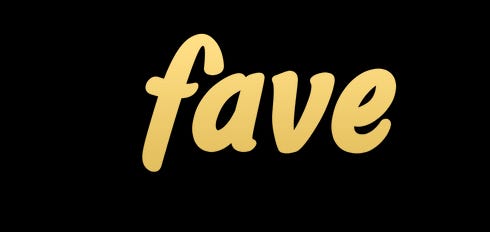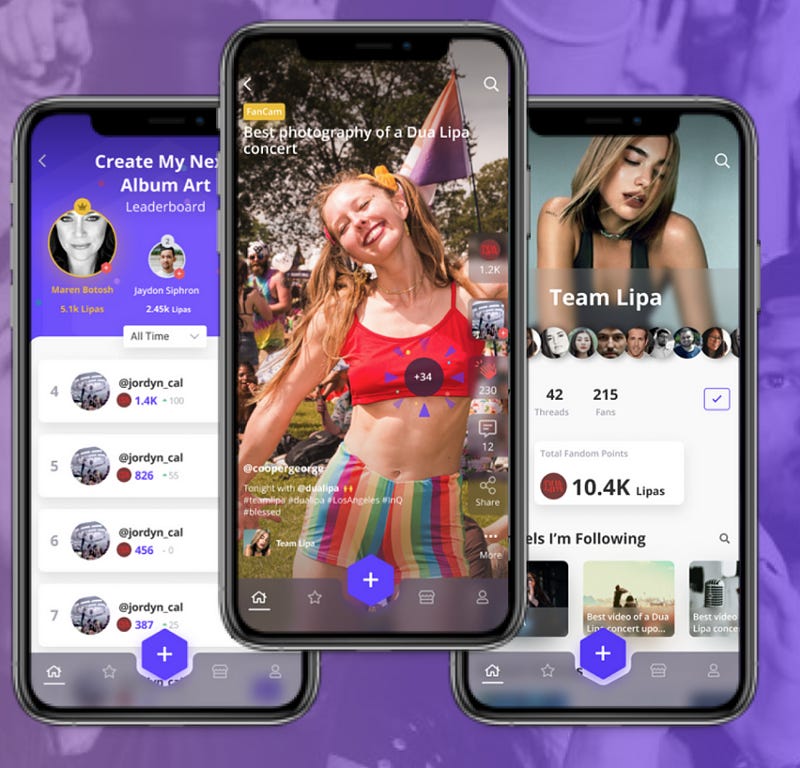Fave Creates Online Haven for Fandoms, Their Creativity
The digital era has taken fandom to new levels. Yet most fan experiences often leave fans wanting more, with no way to channel their full…
The digital era has taken fandom to new levels. Yet most fan experiences often leave fans wanting more, with no way to channel their full creativity or connect deeply with fellow fans. Participation is limited to one-way broadcasts, digital stickers, tips, or a few comments. And artists struggle to turn fan engagement into meaningful insights, inspiring connections, or real revenue.
Fave fixes this, uniting fans in a single online space to create, hang out, and support the artists they love, as well as each other. With early beta kicking off in April 2021 with the Taylor Swift fandom (aka “Swifties”), the platform incorporates an immersive video feed, groups tailored to specific fandoms, a leaderboard that shouts out the most engaged fans, and a points system that lets dedicated fans unlock perks and recognition — with many more features to come. Fave plans to become the hub and a marketplace for fans’ creative exchange and expression, akin to what Etsy did for crafting — and enable fans to monetize as members of the creator economy.
Fave recently received its first funding round from major investors and music industry heavyweights, including HYBE, Sony Music, Warner Music Group, Concord Music, Quality Control, Female Founders Fund, Betaworks, and Techstars. Fave will also be the first company to work with Universal Music Group on a new strategic innovation partnership program.
The need for Fave is clear, to music companies, to artists, and to fans.
“Today’s social platforms kill it at one-way interaction. They give creators a method to communicate with an audience, but there’s very little for the fans to react back with, participate in, and next to no exciting ways for the fans to talk to each other beyond the comments,” explains Jacquelle Amankonah Horton, Fave founder and CEO. “People are connecting with this art in a deep way. But the methods they can use to express that passion is a micro-fraction of what they actually feel.”
It’s those feelings and how people long to express them that have inspired Horton’s own passion for building a home for fandom, not abstract notions of “fan monetization” batted around by music business executives and analysts. Horton has worked closely with several fan communities to hear what they want, what they need, and what tools would help them.
She came by the interest in fandom naturally as a superfan herself. Horton got deeply, madly into Eminem as a tween, following each step in his career and plastering his name across her room and school backpack. Thanks to this obsession, “I know how far fans go to immerse themselves,” she reflects. “Right now, there’s no good outlet for getting recognized for that love. Even though I was a huge fan, I couldn’t just go and buy a $100 ticket to a show or a $70 sweatshirt. My favorite artist got no benefit from my passion. That makes no sense!” It was a lost opportunity on both sides.
Fast forward a decade or so: Horton spent five years at YouTube driving creator and fan engagement products during a seven-year stint at Google. She saw the thrill fans felt when they encountered their favorite creators at in-person events, trying with all their might for a moment of contact, a quick selfie. But the online channels to express and share this thrill seemed remarkably lackluster, templating interactions into comments, likes, or small digital purchases. Horton decided to change this, drawing on her own youthful fan obsessions, the existing communities of superfans, and fan influencers to build something that spoke to fans’ needs.
The industry fascination with “fan monetization” has often considered fan perspectives as an afterthought, preferring top-down approaches modeled on old-school fan clubs and existing relationships. Artists face ever-growing pressure to produce content at a breakneck pace to secure fan attention. In her push to expand the fan engagement model, Horton has turned to the leaders in specific fandoms to guide Fave and its features. “We have a methodical approach. We reach out to fandom leaders who are active on social media or moderators in other online spaces, saying not ‘just come and post here,’ but ‘we’re creating this dedicated place for you; how can we make it amazing?’ We’ve embraced the idea that superfans are our partners in building Fave, not just testers. We genuinely want to be a part of these communities to showcase their value, contribute to the culture, and empower and reward the best fan content through fun experiences.”
With fans driving the platform, Fave offers unique insights for artists and their teams. “We aren’t replacing other channels, but rather extending the conversation from their latest album drop, for example, to an amazing new video or a call for feedback or participation from fans whenever they are considering something creative,” Horton says. “We want artists to rely on this community as a focus group, a place they can get structured feedback back from people they are serving and who care the most.” Along with interactive offerings, contests, and other tools, Fave is rolling out an analytics dashboard to help artists and their teams to track their activities and gauge their success on the platform, adding a helpful and informative dose of data to the qualitative experience of relationship and community building.
It’s a much-needed new approach, as Fave’s early investors and industry support demonstrate.
“Through its investment in Fave, HYBE plans to seek new opportunities in the fan-to-fan platform business while expanding synergy in the fandom business,” notes Tae-Ho Kim, CEO of HYBE’s Weverse Company, their K-Pop fandom platform for fans of BTS and others with over 10M downloads as of Aug 2020: “We expect Fave, which has know-how and technical skills in the U.S. fandom platform market, to bring synergy to HYBE’s platform business as a whole.”
Beyond her insight into fan communities, Horton has a deeper, more personal perspective on superfan motivation and its potential positive impact. Her intense engagement as a diehard fan of Eminem helped her find her own power and strength, to speak her own truth. It also underlined the importance of pursuing your passion, even when everyone seems skeptical or dismissive, just as her musical idol did.
“Eminem’s songs often tell a real and raw story. When I was young, I aspired to be able to say something as clearly as he did and with that level of conviction,” recalls Horton. “As a Black woman who’s the mother of a young child and who works in tech, I’ve drawn on that energy while launching an ambitious vision as a founder/CEO. I’ve stepped into shoes I’ve wanted to walk in for so long. I want to say to others out there, ‘You can do this if you don’t look like the investors, if you don’t have a computer science degree, if you have a toddler. You can push through.’ That’s really the mission of Fave, harnessing what you’re passionate about,” and sharing it with the world.
====================================
🎵 Subscribe today for your daily rundown of the most important & interesting music streaming news
✉️ Send story ideas & feedback to: jeff@platformandstream.com
⭐️ Support Platform & Stream by sponsoring an issue sent to our 2300+ subscribers every weekday.
☕️ Or you can support us with a coffee





